Art Windsor-Essex harnesses the power of art to open minds and hearts to new ideas, perspectives and ways of thinking that inspire people to grow emotionally and intellectually.
- Home
- Mandate, Mission + Vision
Mandate, Mission
& Vision
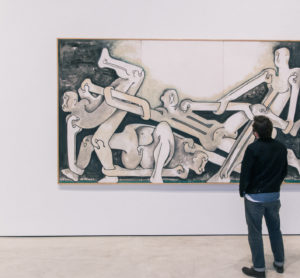
Transformation
To transform Art Windsor-Essex into a community-driven art gallery for the 21st century. We will:
- Reinvent how we work, operate, and interact with stakeholders through innovative approaches, tools, and technologies.
- Connect deeply with our community and together, create vibrant change within our community.
- Become an accessible home for contemporary culture and critical conversations where art, history, culture and civic life intersect.
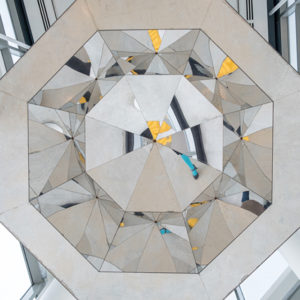
Creating Conversations
To spark community conversations around ideas and issues, such as history, culture and society, leveraging the galleries, collection and exhibitions. We will:
- Provoke conversation through our exhibitions and programs, and introduce different ways to look at, think about, and make art.
- Activate our Collection in ways that make our artworks relevant, accessible, and compelling to audiences.
- Inspire artistic innovation in Southwestern Ontario by becoming a centre for creative, collaborative exploration and a magnet for inventive makers and thinkers.
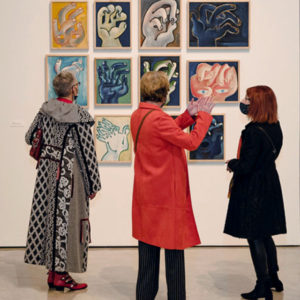
Education & Engagement
To serve and engage with the community as a key, unique hub for learning through art in Windsor-Essex. We will:
- Become a welcoming person-centred, community-driven place for art and culture that is the most vibrant and engaging cultural asset in Windsor-Essex.
- Offer art, education, and social programs that are relevant, accessible and compelling to a broad range of communities.
- Be a strong advocate for visual arts education in Windsor-Essex, and a valued civic and community partner supporting lifelong learning.
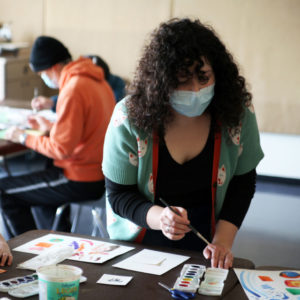
Stewardship
To ensure AWE’s long-term sustainability, manage our assets effectively, be accountable to our community, and maintain positive relationships with stakeholders. We will:
- Diversify partnerships, revenue, and support to build AWE’s resilience.
- Steward positive stakeholder relationships (artists, government, participants, sponsors, staff, volunteers) to facilitate growth.
- Strengthen our visitors’ experiences, programs and collection through effective prioritization of resources and sound decision making
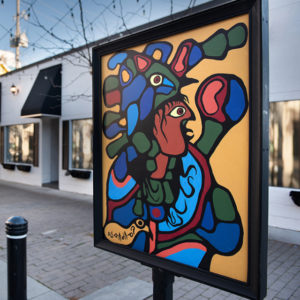
Important Terms
AWE’s Internal DEAI Task Force recognizes that there are pieces of our strategic plan that require definition. We want the people we work with, our audience, and our community members, to understand what we mean when we use these terms in our 2021-25 Strategic Plan, as they are relevant to our goals around equity. Click here for definitions of important terms.
- The gallery is a part of the community, not separate from the community. You belong here.
- We recognize that Windsor-Essex comprises multiple communities – communities with different needs, experiences, and assets.We meaningfully consult with community members when we develop and host programs and activities that speak to the lived experience of those community members. We invite active involvement of community members in the planning and delivery of our programs and activities.
- We strive to ensure our board, staff, and volunteers, and the artists we feature in our programs and exhibitions, represent the diversity of our community.
- We provide multiple points of access for the community to communicate with our staff and leadership. We listen, seek ongoing conversation, and we are willing to change.
- We want to learn what is inside the minds and hearts of the people we work with – your thoughts, feelings, ideas and experiences. We value the practices, stories, and knowledge you have to share.
- We strive to build and maintain positive relationships with the people we work with – board, staff, artists, partners and volunteers – and our audience. We approach our interactions with each other with curiosity and respect.
- We listen to community members, affirm that we hear them, and seek to work together to enact the change we want to see at the gallery and in our community. The institution is led by the quality of our relationships and conversations, not by individuals.
- We welcome all community members and recognize and respect that we possess different identities, have different lived experiences, and face different barriers.
- We support the people we work with and our audience by meeting them where they are. We seek to present a variety of worldviews and ways of being which may be familiar to some, and new to others. We respect that a program or activity which might be enjoyable and relevant for one person may be less enjoyable or relevant to another person.
- We do more than host conversations – we CREATE them through our exhibitions, programs, and other activities. We embed conversation into everything we do.
- We don’t repeat familiar narratives, paradigms or stereotypes. We recognize, present and affirm different ideas, perspectives and experiences.
- We create conversations that challenge preconceptions and prevailing ideas. We invite people to get comfortable with discomfort.
- We create conversations to foster emotional and intellectual growth and to create change in our community. The conversations we create provide participants with tools for action they can use outside the gallery – in their thinking and their daily lives.
- We provide:
- clear content advisories, codes of conduct, and tips on how to respectfully listen, ask questions, and respond to conversation
- clear communication around the content and structure of conversations, so participants can consent to the experience they are electing into
- skilled moderators who provide context around who is speaking, and why a topic is being explored
- opportunities for participants to ask questions in advance, anonymously, and the option to decline responding to questions
- opportunities for participants to connect with one another